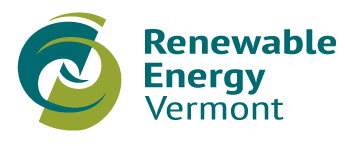Community Solar
Community solar is broadly popular and generally refers to solar projects where the power is used by local residents, small businesses, and municipal entities who own or subscribe to the solar project. Community solar allows individuals to invest in renewable energy even if they cannot install an individual system — whether because they rent or their home is not well-suited for solar.
There are two common varieties of community solar: community-owned solar and community-supported solar. Community-owned solar projects are just what they sound like: solar projects that are built when community members band together to collectively invest in solar. Member-owners benefit from low-cost solar energy and gain an ownership stake in the project. Examples of community-owned solar include the projects operated by the Acorn Energy Co-op, a member-owned cooperative that specializes in community-scale sustainable energy development. Community-supported solar projects operate on a model that is similar to community-supported agriculture, where member-subscribers pay a membership fee in exchange for a share of the output from a solar facility.
Both community-owned and community-supported projects make it possible for anyone to invest in renewables and energy self-reliance regardless of their homeownership status or home location. Until the end of 2024, new Community Solar projects in Vermont were built under the state’s net-metering program. Net metering provides a simple structure for sending renewable power to Vermont’s utilities and receiving compensation for that power directly on members’ electric bills. Because of concerns about the cost of net metering among Vermont utilities and the Scott Administration, net metering is now limited to on-site projects, a compromise that REV and the environmental community agreed to in order to get to 100% renewable power. Community Solar does not need to be limited to net metering, however. One bill that REV championed this year, S.57, would have created a carve-out for Community Solar within the Standard Offer program, providing a predictable vehicle for constructing these projects and creating a truly scalable community solar program for the first time.
Renewable Energy for Communities
Renewable Energy for Communities (RE4C) is a renewable energy procurement program proposed by the Public Service Department (PSD), which is intended to “benefit communities who have historically faced barriers to accessing the benefits of investing in renewable energy.”
The program would require utilities to procure power that would “connect communities” with the benefits of renewable power. RE4C is a tool for utilities to steer some of the financial benefits of solar generation to low-income individuals or communities. It is a laudable goal, but it is distinct from Community Solar, as it has traditionally existed in Vermont.
While REV supports the goals of RE4C, REV opposes the proposal as it is currently written because it does not support community ownership and too much of the program design is being left to the Public Utility Commission. It would be a dangerous precedent for the legislature to cede the creation of a state-subsidized procurement program to appointed officials without much greater clarity about how the program would operate.
RE4C and Nuclear Power
Though the PSD created the proposal for RE4C, the Department’s support for its own proposal is contingent on undoing Vermont’s 100% Renewable Energy Standard and replacing it with a “Clean” Energy Standard that creates a financial incentive for Vermont utilities to continue to invest in nuclear power. Based on the Department’s modeling, REV estimates that abandoning our Renewable Energy Standard would only save a typical Vermont ratepayer about 31 cents/month.
